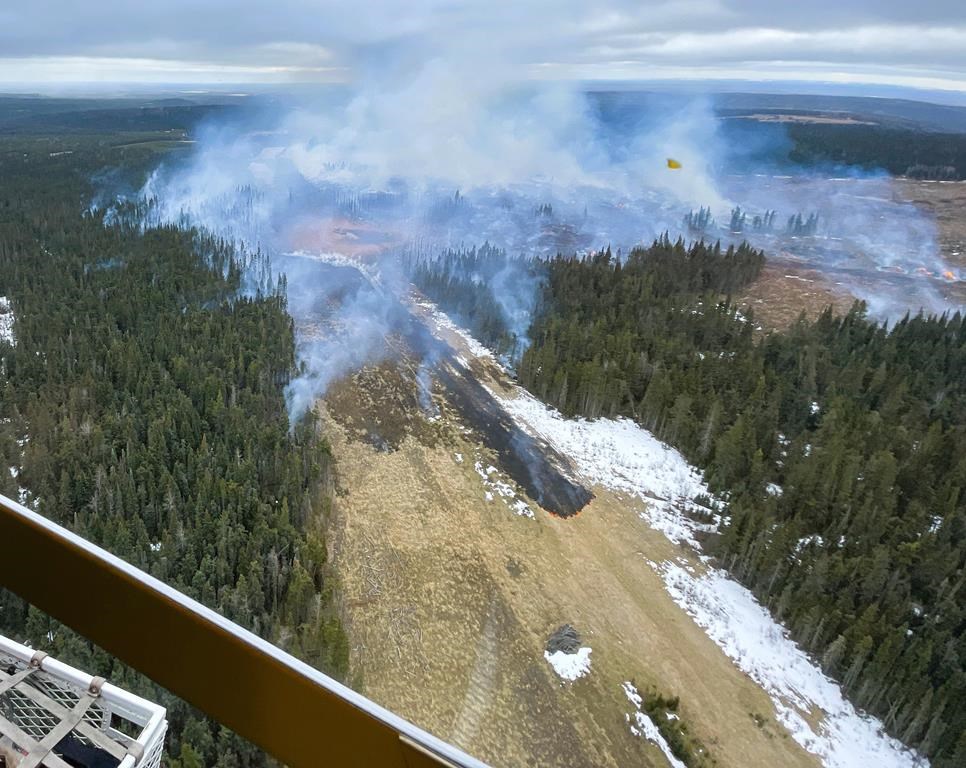Public Health Agency says Canadians at low risk from pneumonia in central China
Posted January 13, 2020 4:49 pm.
OTTAWA — The federal public health agency says it believes Canadians are at low risk of contracting a new type of pneumonia that has killed one person and made dozens sick in central China, but it has issued a warning to travellers to and from the city of Wuhan.
The agency is advising travellers to and from the city in China’s central Hubei province to avoid high-risk areas such as farms, live animal markets, areas where animals may be slaughtered or surfaces with animal droppings or secretions.
Canada’s chief public health officer Theresa Tam has also been in close contact with provincial and territorial counterparts to share information about the illness, which has sparked concerns over a possible outbreak similar to the SARS virus, which killed hundreds in 2002 and 2003.
The U.N.’s World Health Organization said Thai officials have reported that a traveller from Wuhan has been hospitalized in Thailand with the virus — the first confirmed case of the virus found outside China, where a total of 41 people are suffering from this new “coronavirus.”
A 61-year-old man has also died from the illness — China’s first known death from the mysterious new virus.
The outbreak has been traced to Wuhan, where it affected several dozen people who had been to a major meat and seafood market.
Canada’s public health agency says the likelihood of an outbreak in Canada linked to the cases in China is considered low at this time mainly because of the lack of any clear evidence of person-to-person spread. But officials are remaining vigilant.
“Given we are at the height of respiratory illness season, it is not unexpected that countries, including Canada, may investigate or test travellers with severe pneumonia who are returning from the affected area,” said Anna Maddison, a senior media relations adviser with the Public Health Agency of Canada.
“This is to be expected given our surveillance systems have been alerted and out of an abundance of caution to rule out the possibility of infection with the novel coronavirus.”
A statement issued Monday by the WHO said it is working with officials in Thailand and China following the report of the confirmed case outside China. The WHO’s director-general is consulting with the agency’s emergency committee, which generally decides whether viral outbreaks merit an expanded response from health authorities.
China says the cause of the Wuhan outbreak remains unknown but has sought to play down speculation that it could be a reappearance of the SARS epidemic.
Chinese scientists have undertaken gene sequencing for the newly-identified coronavirus. This allows Canada’s health agency to implement diagnostic tests for this novel virus, Maddison said.
“PHAC is continuing to collaborate with partners internationally as well as working with federal, provincial and territorial partners and public health authorities and to ensure Canada’s preparedness to rapidly identify and prevent the spread of this emerging disease should it present in Canada.”
Coronaviruses are a large family of viruses, some of which cause the common cold. Others found in bats, camels and other animals have evolved into more severe illnesses.
Common symptoms include a runny nose, headache, cough and fever. Shortness of breath, chills and body aches are associated with more dangerous kinds of coronaviruses, according to the U.S. Centers for Disease Control and Prevention.
This report by The Canadian Press was first published Jan. 13, 2020.
— With files from The Associated Press.
Teresa Wright, The Canadian Press








